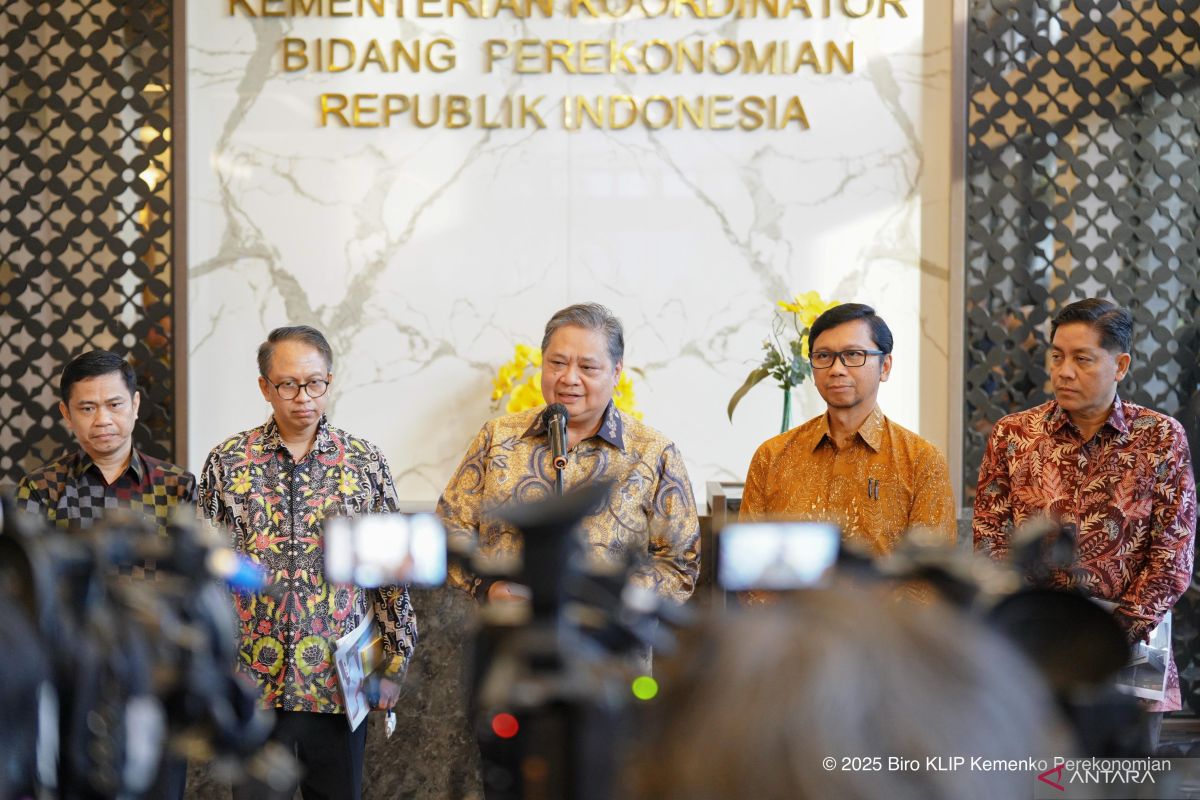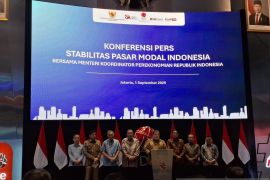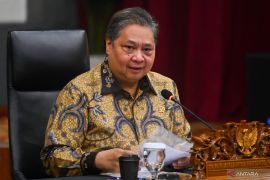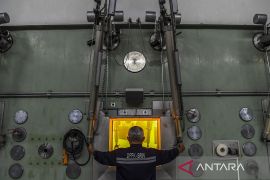After almost a decade of negotiations, Indonesia and the European Union finally agreed on concrete steps to finalize the Indonesia-European Union Comprehensive Economic Partnership Agreement (IEU-CEPA).
Coordinating Minister for Economic Affairs Airlangga Hartarto's visit to Brussels, Belgium, on June 6, marked the acceleration of the agreement finalization process.
During a meeting with European Union Commissioner for Trade and Economic Security Maroš Šefovi, both sides agreed to complete the legal draft of the IEU CEPA, which is now 90 percent complete.
The Indonesian government aims to finalize the legal document by September 2025, with full implementation expected in the first quarter of 2027, after ratification by all 27 EU member states.
Optimizing the European market
The IEU-CEPA opens broader opportunities for Indonesian exports. The government projects that national exports could rise by up to 50 percent within three years of the agreement's full implementation.
According to Hartarto, the increase could put Indonesia’s export performance on par with neighboring countries such as Vietnam and Malaysia, which had earlier inked similar trade agreements with the European Union.
The most significant direct benefit of the IEU-CEPA is the exemption of import duties for 80 percent of Indonesia's export products to the European Union market. Commodities, such as textiles, fish, footwear, automotive products, and also palm oil (CPO), which were earlier subject to tariffs of 8-12 percent, will now enter the European market with nearly zero tariffs.
One of the crucial points in the IEU-CEPA negotiations is the European Union's acceptance of palm oil exports from Indonesia. This step is important, as Indonesian palm oil products were previously banned by the European Union over environmental concerns. Now, palm oil is included in the scope of the IEU-CEPA, with a distinction made between food-grade products and those used as fuel.
This strategic breakthrough could restore access to the Indonesian palm oil market, which has been restricted by strict European regulations.
The automotive sector will also benefit from this agreement, as the Indonesian government seeks to create a level playing field and give domestically produced vehicles, including electric vehicles, a chance to compete in the European market.
While awaiting the finalization of the IEU-CEPA, Hartarto appealed to business actors in Indonesia to reach out to consumers and their colleagues in Europe to prepare if this partnership scheme is implemented later.
Engine of competitiveness and investment
Beyond exports, the IEU-CEPA cooperation also aims to foster a healthier trade and investment ecosystem. This agreement covers more than just the elimination of tariffs but also includes strengthening intellectual property rights, removal of technical barriers to trade, sanitary and phytosanitary standards (SPS), as well as facilitating digital trade and promoting a sustainable economy.
The IEU-CEPA addresses 24 key elements, including:
1. Trade in Goods
2. Trade in Services
3. Investment
4. Technical Barriers to Trade (TBT)
5. Sanitary and Phytosanitary Standards (SPS)
6. Intellectual Property Rights (IPR)
7. Micro, Small, and Medium Enterprises (MSMEs)
8. Trade Remedies
9. Customs and Trade Facilitation
10. Rules of Origin
11. Good Regulatory Practices
12. Transparency
13. Digital Trade
14. Trade and Sustainable Growth
15. Business Competition
16. Energy and Raw Materials
17. Government Procurement
18. Economic Cooperation and Capacity Building
19. Sustainable Food Systems
20. Dispute Settlement
21. Initial Provisions and General Definitions
22. Institutional Provisions
23. Provisions Conclusion
24. Exceptions
More importantly, the IEU-CEPA offers opportunities for greater foreign direct investment (FDI) from Europe.
In 2023, the European Union was Indonesia's eighth-largest investor, with investments totaling US$2.33 billion. However, this figure fell by 52.4 percent in 2024, with an investment value of US$1.1 billion.
Legal certainty and expanded market access are expected to help the IEU-CEPA boost investment in the coming years.
Homework awaits
Amid global uncertainty stemming from geopolitical conflicts and the threat of protectionist policies such as reciprocal tariffs imposed by US President Donald Trump, the IEU-CEPA is seen as a strategic step.
By establishing closer trade relations with Europe, Indonesia can expand its export market and achieve greater domestic economic stability.
Indonesia's trade balance with the European Union shows a promising trend. In 2024, Indonesia recorded a trade surplus of US$4.5 billion, a significant increase from US$2.5 billion in the previous year.
The total trade between both parties also reached US$30.1 billion, making the European Union Indonesia's fifth-largest trading partner.
The complementary trade structure also strengthens this relationship. Indonesia exports primary and manufactured products, while the European Union supplies capital goods such as machinery, vehicles, and medicines. This combination creates a mutually beneficial economic relationship.
However, full implementation of the IEU-CEPA will take time. The ratification process in the 27 EU countries can take up to a year or more due to complicated domestic legislative procedures.
The IEU-CEPA document must also be translated and reviewed by each of the 27 EU member states. This process is highly dependent on the political and administrative readiness of each member.
Director General of International Trade Negotiations at the Ministry of Trade, Djatmiko Bris Witjaksono, acknowledged the challenge, estimating that this European legislative process could take 10-12 months.
The government has prepared a roadmap targeting the full implementation of IEU-CEPA in the first quarter of 2027.
Despite the benefits of international trade cooperation, Indonesia's domestic industry still faces challenges. The remaining time should be utilized to prepare the national industry’s ability and readiness.
Opening communication with trading partners in Europe, increasing product quality standards, and strengthening competitiveness are important for business actors to fully capitalize on this opportunity.
The IEU-CEPA is not just an agreement, it also serves as an opportunity to strengthen the domestic industry. If utilized optimally, it can drive Indonesia’s market expansion and strengthen the country’s position on the global trade map.
Related news: IEU CEPA could lift exports by 50% in three years: Hartarto
Related news: IEU-CEPA strategic solution amid global volatility: deputy minister
Translator: Bayu Saputra, Resinta Sulistiyandari
Editor: Primayanti
Copyright © ANTARA 2025












